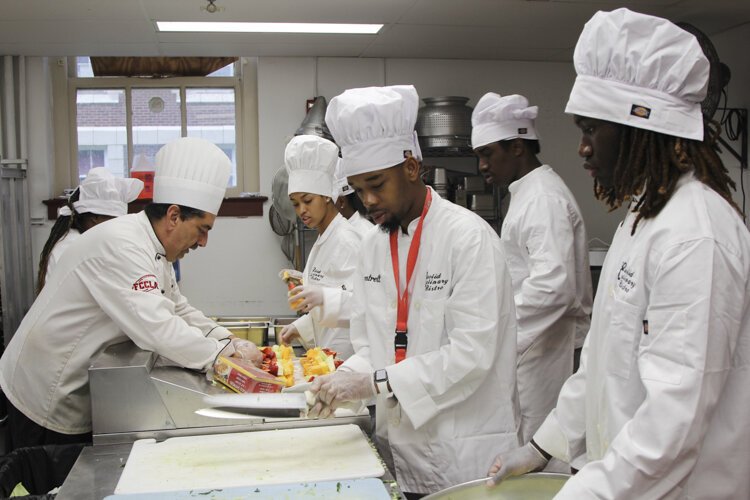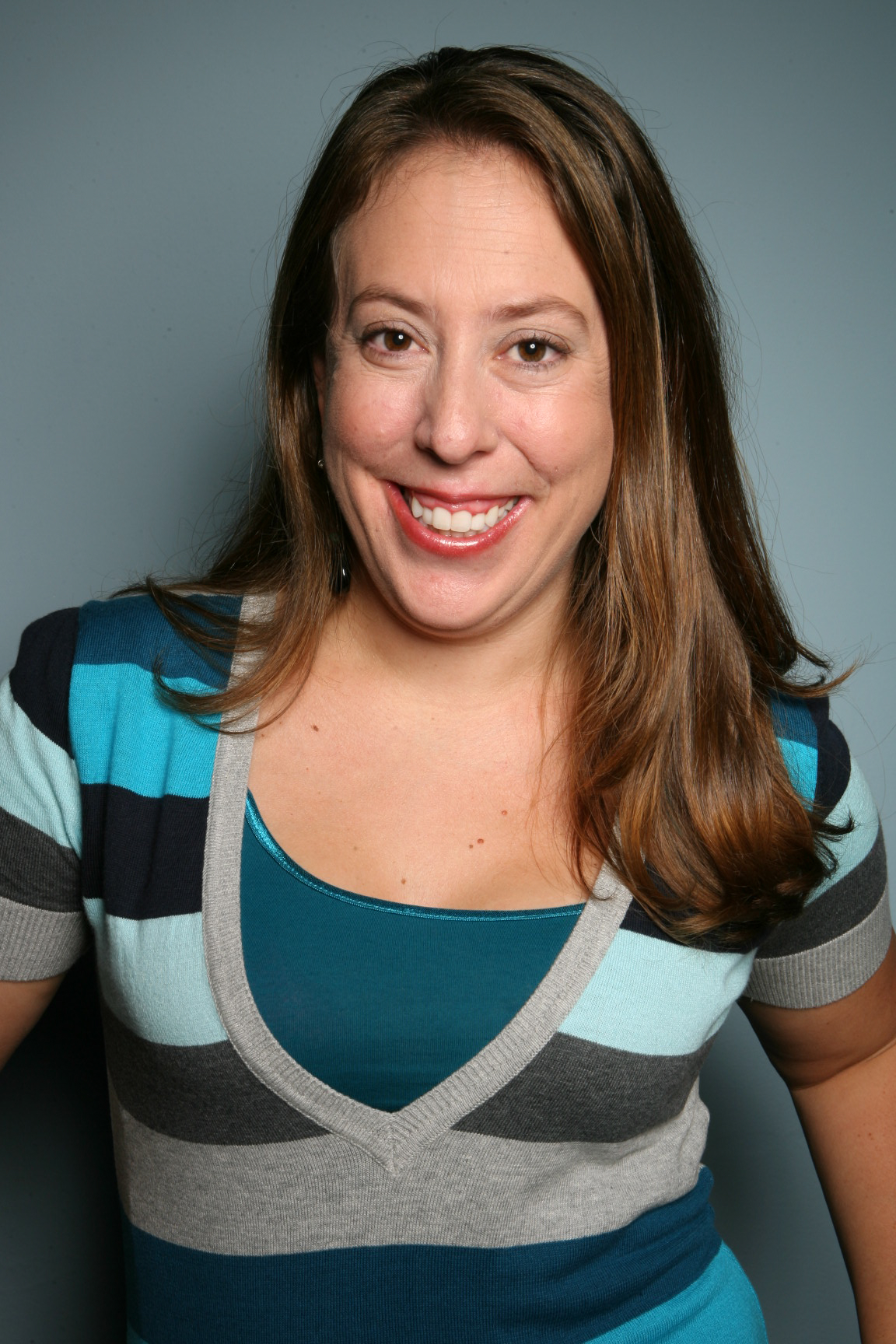'Til the levy runs dry: Euclid schools enlist the community’s help to continue trending upward
When her daughter Alexis was 15 months old, Angie Lisy received news that no parent wants to hear: Her baby was totally deaf, and “all the high-powered hearing aids in the world would never help her,” recalls Lisy.
The doctors advised Lisy to contact her local school district about early intervention resources—and so began a 15-year journey in tandem with Euclid City Schools to provide Alexis (who also has cerebral palsy and epilepsy) with the individualized education program (IEP) that would help her thrive. Those recommendations included auditory training, intensive speech and language therapy, and physical therapy at the Mayfield-based Millridge Center for Hearing Impaired, which Lisy says can cost upwards of $75,000 per year.
“The Euclid school district paid a very big-ticket price to have my daughter educated from the ages of 3 through 18, and they never batted an eye,” says Lisy, adding that Alexis is now verbal and on the verge of obtaining two associate degrees from Lakeland Community College at 25 years old. “I’ve been very impressed by the way they take care of their special needs students.”
That’s no easy feat, considering that Euclid City Schools has approximately 21.8% of students with disabilities (as compared with the state average of 15.16%), but the district has risen to the challenge. In the last 10 years, the number of autism units has doubled from two to four, and Euclid City Schools is the only district in Cuyahoga County to receive the “District of Distinction” designation for positive behavior interventions and supports.
 “Is it expensive to educate special needs children? Yes, but it’s the moral, right thing to do,” says Christopher Papouras, interim superintendent of Euclid City Schools. “If a child walks into the Euclid City Schools, we make sure their needs are met, and that extends through the gifted and talented students.”
“Is it expensive to educate special needs children? Yes, but it’s the moral, right thing to do,” says Christopher Papouras, interim superintendent of Euclid City Schools. “If a child walks into the Euclid City Schools, we make sure their needs are met, and that extends through the gifted and talented students.”
That across-the-board commitment is exactly why Lisy is going all-in to connect with other Euclid citizens to garner support for the upcoming levy. As a Euclid School Board member in her fourth term, Lisy has been hosting “coffee talks” across the city—which is largely divided on the levy—in private homes, at ward and homeowners’ association meetings, and at local PTA meetings.
So far, Lisy has done 17 talks (with more to come), and she hopes she can help move the needle in favor of Issue 4, which places an 8.7-mill, 10-year emergency operating levy for Euclid City Schools on the Nov. 5 ballot.
“If I can engage 20 people at a coffee, and they each talk to two people, we triple our impact,” says Lisy. “It gives people the chance to ask questions they might not feel comfortable asking at a televised City Council meeting, and it gives us the chance to explain the [Ohio state report card] grade and all the things we’re doing to address the educational gap.”

Making the grade
The “grade” Lisy refers to is one of the hot buttons dividing Euclid citizens on whether to support the levy. Citizens who oppose the levy point to the fact that Euclid City Schools have received failing grades on the Ohio school report card in recent years, while supporters hail this year’s increase to a “D” grade and other promising trends (such as a “gap closing” measure of almost 40%, measuring the district's effectiveness at educating its most vulnerable student populations).
According to interim superintendent Papouras, Euclid is one of 17% of school districts in Ohio to improve one letter grade this year, along with Painesville and Cleveland.
“That matters because we’re out of the state’s crosshairs for a takeover,” says Papouras. “We’re not celebrating having a ‘D’ grade, but we’re certainly celebrating the momentum we’re making in the district.”
 As prime examples, Papouras points to a 5% increase on the four-year high school graduation rate to 70.2%, as well as positive growth for local elementary schools such as Chardon Hills (which scored an “A” in Gap Closing for the last two years) and Shoreview (which has received a State Momentum Award for three years running).
As prime examples, Papouras points to a 5% increase on the four-year high school graduation rate to 70.2%, as well as positive growth for local elementary schools such as Chardon Hills (which scored an “A” in Gap Closing for the last two years) and Shoreview (which has received a State Momentum Award for three years running).
Shoreview principal Mary Thomas attributes the school’s momentum largely to the faculty and staff’s willingness to do a deep-dive into the state data. Teacher-based teams meet weekly with an instructional coach and intervention specialist to review the numbers, set corresponding goals and classroom activities, and check in on progress.
“At the very beginning of the year, we set grade-level goals for the end of the year and do checkpoints throughout,” explains Thomas. “We don’t just cross our fingers for when the test results come out in June. On the day the information is released, my phone is exploding with texts, emails, and calls—my teachers are on it.”
Going beyond the numbers
While Thomas, Papouras, and many others in the district are laser-focused on the state data, Papouras stresses that there is a much “bigger picture” at play. “People tend to look at student achievement through the lens of [state] report cards, but that’s just one aspect of what we do in our schools,” says Papouras.
For instance, Euclid High School offers robust Career Tech opportunities as part of the Lake Shore Compact, including programs in auto service technology, criminal justice, culinary arts, fire science/EMT, welding, and urban agriculture for which students can earn college credit. The high school also offers a College Credit Plus program, which enables students to earn college and high school credit simultaneously.

Lisy can speak to all of these facets, as her two other daughters, Samantha and Jessica, were both second-semester sophomores before they entered their freshman year of college due to College Credit Plus, while her son, Freddy, is a high school junior participating in the welding program.
“People ask me why on earth I would send my kids to a failing public school system, but all four of my kids have taken very different paths and were able to be equitably educated in Euclid,” says Lisy, who has resided in Euclid for 27 years. “The majority of our [high school] students may not take an immediate traditional four-year college pathway when they graduate, so we want to make sure they’re ready for wherever life takes them.”
Hitting a tipping point
With Election Day just two weeks away, Issue 4 represents a fork in the road for Euclid City Schools—which announced widespread cuts in April after the renewal of a 2008 emergency levy did not pass in November 2018. Implemented during the 2019-2020 school year, cuts have included a pay freeze for all school employees, along with a decrease in transportation/busing to state minimums, elimination of numerous after-school programs, and more.
Shoreview’s Thomas is concerned about the additional cuts that may take place if Issue 4 doesn’t pass, and their potential ripple effect (such as larger class sizes and less resources).
“We as a staff have done everything we can do to maintain appropriate supervision, safety [measures], and instruction,” says Thomas. “No one ever wants to think that safety and supervision will be the reason their child doesn’t get a good education, but my fear is that something will give if we don’t pass this levy this time.”
 From Papouras’ perspective, the passage of Issue 4 will enable the district’s performance to keep trending upward, and to work on restoring programs and positions that were cut in 2019. “Our students can’t afford to have cuts that go deeper into the academic curriculum,” says Papouras. “A strong school system means a stronger community and vice versa—they go hand in hand and can’t be separated.
From Papouras’ perspective, the passage of Issue 4 will enable the district’s performance to keep trending upward, and to work on restoring programs and positions that were cut in 2019. “Our students can’t afford to have cuts that go deeper into the academic curriculum,” says Papouras. “A strong school system means a stronger community and vice versa—they go hand in hand and can’t be separated.
It’s a tough sell for some Euclid citizens though, who cite already-steep property taxes and other economic burdens—such as a shared income tax that supports the schools—as reasons they don’t support the levy. (As of 2018, Euclid ranked 14th of 81 cities, villages, and townships in Cuyahoga County for its residential tax rate of 3.11%.) Euclid Citizens for Action founder Jeff Beck spoke to 90.3 WCPN's "The Sound of Ideas" about some of these concerns in August, pointing to other pressing needs such as hiring police and housing inspectors and fixing roads.
“We’re in a position now where we can’t afford to hire cops, beef up housing inspections, or fix our roads,” Beck tells FreshWater. “For years, people have voted for levy after levy, and we haven’t seen a return on that investment. I always say, you’ll never find a thriving school district in a struggling city, and you’ll never find a struggling school district in a thriving city.”
 For Julie Nowak Ilcin, who has been a Euclid resident for more than 20 years, attending one of Lisy’s coffee talks was a welcome opportunity to ask those tough questions and learn more about what’s at stake. She says doing so solidified her “yes” vote for Issue 4.
For Julie Nowak Ilcin, who has been a Euclid resident for more than 20 years, attending one of Lisy’s coffee talks was a welcome opportunity to ask those tough questions and learn more about what’s at stake. She says doing so solidified her “yes” vote for Issue 4.
“No one had rose-colored glasses on—all kinds of people from the community came, even people who don’t have kids and don’t have a reason to care,” says Nowak Ilcin. “They came and asked the hard questions, and all but two of the people who attended now have a [Vote Issue 4] sign in their yards.”
Papouras hopes that enough residents will follow their lead to make Issue 4 a reality and continue laying the groundwork for a brighter future at Euclid City Schools: “Academic momentum is picking up,” says Papouras. “We believe great things are just ahead.”
This article is part of our On the Ground - Euclid community reporting project in partnership with City of Euclid, Euclid City Schools, Tri-C, and Cuyahoga County Board of Health. Read the rest of our coverage here.




